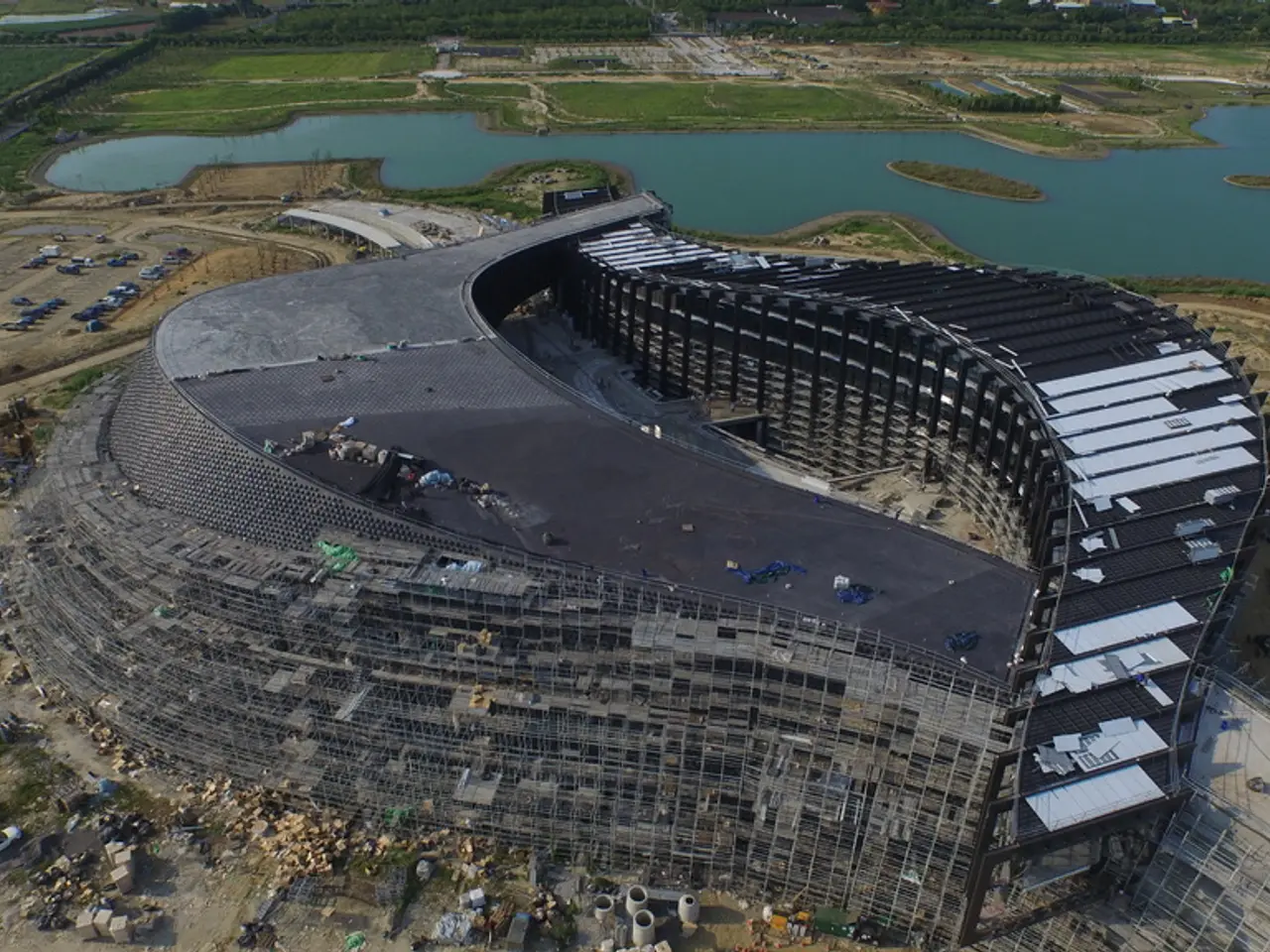Efforts carried out under the Public-Private Partnership (PPP) program
Revamped Article:
Hop on Board: Kazakhstan's III Forum on Public-Private Partnerships (PPPs) Shakes Things Up in Astana
The whirlwind discussion about the future of cooperation between the government and private sector in tackling infrastructure and social projects took center stage in the energetic city of Astana.
The bustling gathering, dubbed the III Forum on PPPs, was masterminded by the Investment and Entrepreneurship Development Department of Astana, partnering with the Association of Builders of Kazakhstan.
The forum provided a much-needed platform for a diverse cast of characters – including city and national officials, financial institutions, business associations, international organizations, and independent experts – numbering around a spirited 100 participants. The event kicked off with a bang, as Nurlan Nurkenov, First Deputy Akim of the city, took the stage to welcome those in attendance.
Throughout the day, key obstacles and innovative approaches for advancing PPP development were vigorously debated during the plenary session and insightful panels. Chief speakers included Aidos Kabetov – Deputy Chairman of the Board of AO "KazCenterPPP," Aliya Murzagalieva – Director of NUH "Baiterek," Askar Khoroshash – Deputy Chairman of the Board of NAO TurarHealthcare, Arman Tleubayev – Head of the "Association of Independent Experts in PPP and Investments," and Remir Mukumov – an international consultant with a wealth of experience in reforms and PPP tools in Uzbekistan.
The bulk of the conversation revolved around issues like state aid, private investment enticement, regional project development, and gauging the social implications of PPP initiatives.
The lively panel discussion was moderated by Rahim Oshakbaev, a prominent public figure and insightful analyst. Some of the session's key speakers returned to delve further into the practical aspects of PPP development in Kazakhstan.
Once the event wrapped up, a host of recommendations were tabled to encourage the growth of the PPP mechanism, reduce barriers, and turbocharge project efficiency. The fervent call for simplifying regulatory regulations and creating a supportive environment for investors was loud and clear.
Notably, PPPs were thrust under the spotlight not as risky maneuvers, but as smashing, time-tested tools for executing social and economic infrastructure in budget-constrained circumstances.
Now, let's delve into the enrichment data to uncover the larger picture:
- The 2015 PPP Law (currently in revision) aims to broaden PPPs' scope, making way for long-term lease concessions and an inviting legal framework for private investment in infrastructure projects.
- Efforts are underway to ensure sustainability through Environmental Impact Assessments (EIAs) for PPP projects that may endanger the environment or public health.
- The PPP model is being eagerly integrated into the national project "Zhasyl Kazakhstan" (Green Kazakhstan) for 2021-2025, with an emphasis on environmental improvements, waste processing, energy efficiency, and biodiversity preservation.
- Recognizing the need for efficient land acquisition and social impact frameworks, especially for international financing and ESG (Environmental, Social, and Governance) compliance, is a crucial focus for PPP development.
- As PPPs gain traction, there's a growing push to expand their reach beyond the educational, health, and energy sectors, particularly in transport infrastructure and urban centers like Almaty and Astana.
- The Asian Development Bank-supported Knowledge and Experience Exchange Program offers technical support and capacity development for government agencies, helping to enhance the efficiency and innovation of PPP projects.
- Industrial zone development, as demonstrated by the AQMOLA Industrial Zone near Astana, presents promising opportunities for PPPs to encourage foreign and domestic investment, driving industrial diversification and job creation.
In conclusion, the forum emphasized legislative reform, sustainability integration, institutional capacity building, and strategic project alignment as pillars for fostering a robust PPP ecosystem in Kazakhstan, attracting private investment, and bolstering infrastructure and public services with clear environmental and social safeguards.
- The PPP model, with its inviting legal framework for private finance in infrastructure projects, is being promoted as a key strategy within the national project "Zhasyl Kazakhstan" for environmental improvements, waste processing, and biodiversity preservation, indicating the broader application of PPPs in sectors such as transport infrastructure and urban centers like Almaty and Astana.
- As the III Forum on PPPs highlighted, focusing on legislative reform, sustainability integration, institutional capacity building, and strategic project alignment is essential for fostering a robust PPP ecosystem in Kazakhstan, thereby attracting private industry and business, while enhancing infrastructure and public services with clear environmental and social safeguards.




